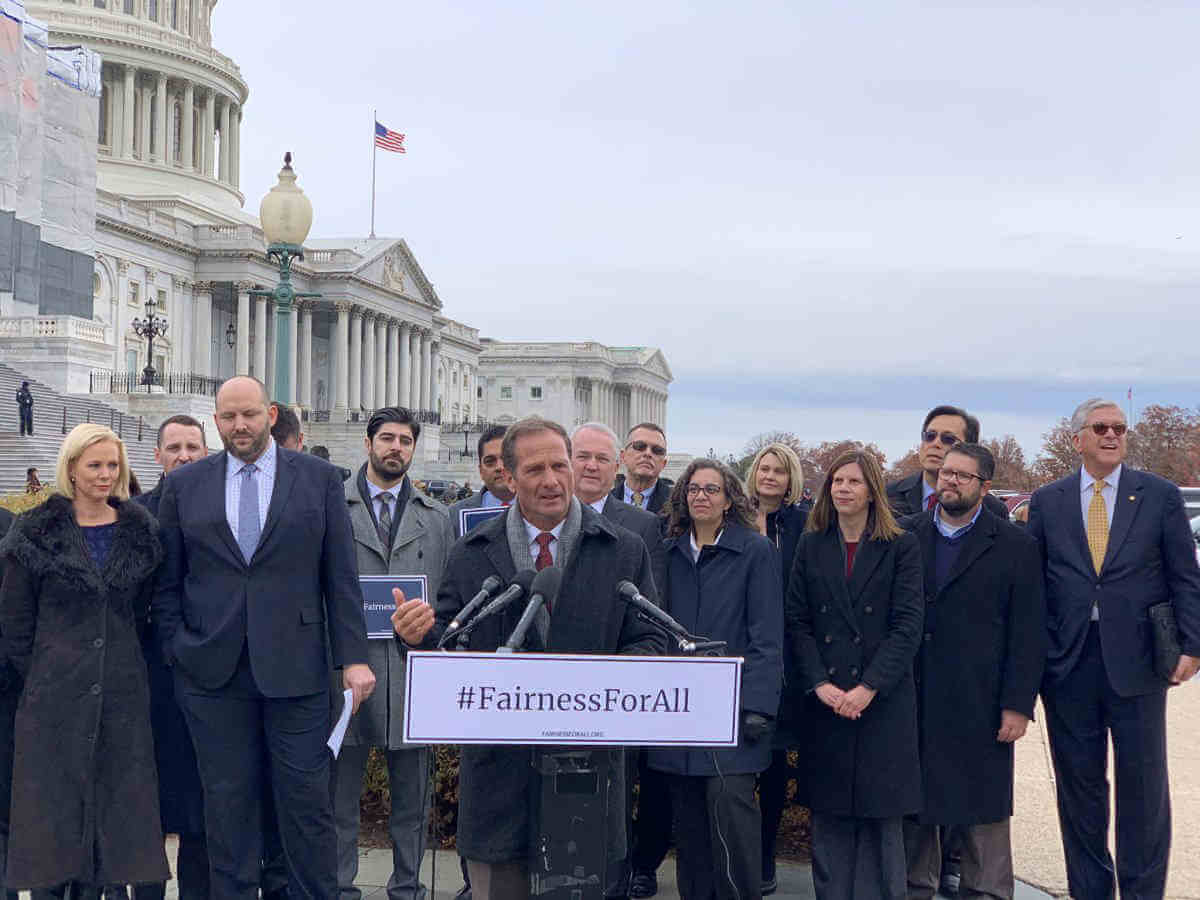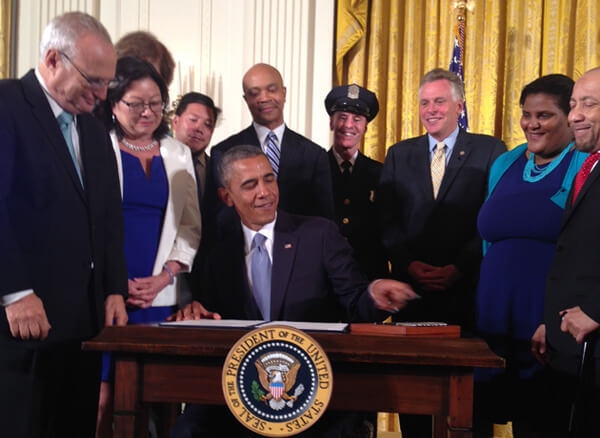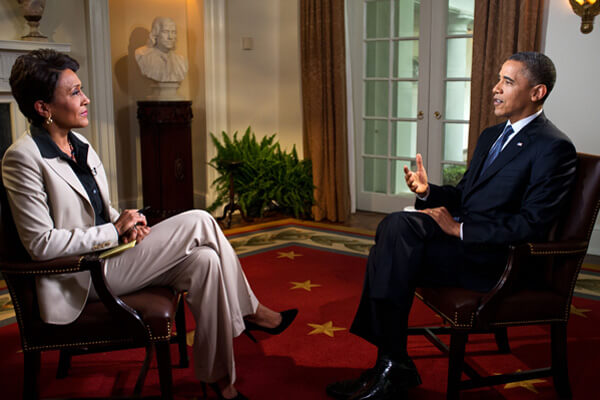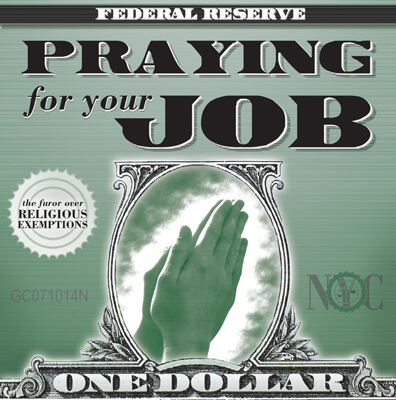Several House Republicans who recently voted against the comprehensive LGBTQ rights bill known as the Equality Act rolled out their own version of a queer rights bill on December 6, but advocates and LGBTQ lawmakers promptly raised alarms over numerous religious carve-outs embedded within the legislation.
Republicans pitching the bill, dubbed the Fairness for All Act (FFAA), claim it would usher in many of the same protections as the Equality Act and cover employment, housing, public accommodations, credit, federally-funded services, refugee resettlement, and jury service.
But there are caveats — numerous ones, in fact — so much so that the bill has support from religious groups traditionally known to be hostile to LGBTQ rights: the Mormon Church and the Seventh-Day Adventist Church.
The fine print is instructive. While the FFAA would follow the exemption for businesses with fewer than 15 employees embedded in the 1964 Civil Rights Act, it would also exempt religious and religious-affiliated employers even in the hiring of workers whose job function has no connection to faith activities. It would also broaden the right of employees to voice anti-LGBTQ sentiments in the workplace, and adoption agencies would have the right to turn away same-sex prospective parents. While public schools would need to abide by anti-bullying policies, private schools would be exempt. Those are just some of the many sweeteners aimed at satisfying religious conservatives.
The bill, similar to a 2015 nondiscrimination measure that was enacted in Utah, was introduced in the House by Congressmember Chris Stewart of Utah, who led a press conference announcing the bill at the Capitol on December 6 and is planning a separate presser in his home state on December 9.
The bill is laced with many other conditions that will undoubtedly provoke opposition within the LGBTQ community. Spaces not considered public accommodations under this bill include not only churches and religious headquarters, but also religious schools, religious funeral homes and cemeteries, religious-affiliated charities, and mental health therapists focusing on marriage. Faith-based adoption and foster care agencies would be exempted, for example, by steering any federal funding for such activity to prospective adoptive or foster parents rather than to the institutions that serve them — or don’t.
How the bill interacts with local laws varies — and, here, the bill’s sponsors will have trouble maintaining their argument that it does not curb any existing civil rights. Although the bill allows state and local law to override the exemption of small business from nondiscrimination requirements, there are other cases where this legislation would preempt existing local protections. In an information sheet distributed in connection with the announcement of the FFAA, supporters state that Catholic Charities could legally refuse to hire a lesbian despite hiring non-Christians and the lesbian could pursue no local or state remedies and no level of government could punish Catholic Charities. The legislation affirmatively creates a federal right for Catholic Charities to act in this discriminatory way.
Co-sponsors — all Republicans — include Congressmembers Fred Upton of Michigan, Elise Stefanik of New York, Rob Bishop and John Curtis of Utah, Mark Amodei of Nevada, David Joyce of Ohio, and Mike Simpson of Idaho. Interestingly, Representative Brian Fitzpatrick of Pennsylvania — who was just one of three House GOP co-sponsors of the Equality Act, along with John Katko of New York and Jenniffer González-Colon of Puerto Rico — also backs the Fairness for All Act.
A handful of influential political figures played a key role in pushing for GOP support on Capitol Hill, including Tyler Deaton and Margaret Hoover from the American Unity Fund, a group whose stated aim is to advance “the cause of freedom for LGBTQ Americans by making the conservative case,” and Tim Schultz of the 1st Amendment Partnership, a group that fights to protect religious freedom. Shirley Hoogstra, the president of the Council for Christian Colleges & Universities, also backed the effort.
Notably, no members of the US Senate have stood in support of the bill, and Deaton told Gay City News in an email that the bill would not be introduced in the upper chamber until after the conclusion of the Supreme Court cases related to LGBTQ discrimination that were argued earlier this fall. It seems unlikely that any supporters of the Equality Act would engage FFAA supporters in discussion or negotiation without, at minimum, a sign of Senate Republican support for this new bill.
The Alliance Defending Freedom (ADF), an anti-LGBTQ legal group known for stifling queer rights legislation in courts, did not respond to Gay City News’ requests for comment on the legislation. The group, however, unveiled a press release in December of last year criticizing the Council for Christian Colleges & Universities for supporting the Fairness for All legislation.
“Unfortunately, sexual orientation and gender identity [SOGI] laws like the so-called ‘Fairness for All’ proposal undermine both fairness and freedom,” Kristen Waggoner, a senior vice president for ADF’s US legal division, said in that written statement. “This proposal is a SOGI law under different branding, with special — and likely temporary — exemptions that protect only a favored few.”
Republican supporters of the FFAA have been warned their records will suffer in congressional scorecards kept by far right groups.
Out gay Congressmember David Cicilline of Rhode Island, who is co-chair of the LGBT Equality Caucus, said in a written statement on behalf of the group that the bill “does not protect LGBTQ people.”
“Instead it codifies discrimination,” Cicilline said. “The House already overwhelmingly passed the bipartisan Equality Act, which will ensure equal protection under the law for LGBTQ Americans. The Senate should bring the Equality Act up without further delay.”
Another out gay member of Congress, Sean Patrick Maloney of New York’s Hudson Valley, warned the public to avoid getting fooled by a bill that he said has nothing to do with fairness.
“The bipartisan Equality Act is the only bill in the House that will bring equal protections under the law for LGBTQ people,” he said in a written statement to Gay City News. “This weak legislative stunt by the Republican Party won’t deter us in our fight for true equality.”
Additional out LGBTQ members of Congress voiced similar feelings. Mark Pocan of Wisconsin described the bill as the “so-called” Fairness For All Act and said in a written statement that it “is an attempt to codify bigotry, plan and simple.”
“This bill would allow religious organizations and people to discriminate against LGBTQ communities,” he explained. “Legalizing discrimination against any person for their sexual orientation or gender identity is unacceptable and this bill should be seen for what it is — a deliberate attempt to legalize prejudice.”
Out lesbian Representatives Sharice Davids of Kansas and Angie Craig of Minnesota did not immediately return requests for comment.
The American Civil Liberties Union expectedly ripped the bill. ACLU national political director Ronnie Newman said in a written statement that “this bill facilitates efforts to allow taxpayer-funded discrimination, undermines existing civil rights protections, and gives a green light to turning LGBTQ people away from jobs, health care, housing, and more.”
He continued, “The bill would change the critical balance between our fundamental values of religious liberty and prohibiting discrimination that Congress already struck in the Civil Rights Act of 1964 in order to license more discrimination. There’s no reason laws prohibiting discrimination should be different for LGBTQ people.”
A joint statement from numerous civil rights and other advocacy groups — incluing Human Rights Campaign, GLAAD, Lambda Legal, PFLAG National, the Transgender Law Center, the National Black Justice Coalition, National Queer Asian Pacific Islander Alliance, the American Civil Liberties Union, Americans United for Separation of Church and State, the Center for American Progress, the Leadership Conference on Civil and Human Rights, and the NAACP — stated, “The ‘Fairness for All’ Act is anything but fair, and it certainly does not serve all of us. It is an affront to existing civil rights protections that protect people on the basis of race, sex, and religion and creates new, substandard protections for LGBTQ people with massive loopholes and carve-outs, and upends critical federal programs that serve children in need. This legislation is deeply dangerous for many reasons, mainly because it would erode protections that already exist for people based on race, sex, and religion, rolling back protections that have been on the books for decades. It would expand the number of places and situations in which lawful discrimination could occur. At the same time, it would introduce new, problematic provisions purportedly seeking to prohibit discrimination based on sex, sexual orientation and gender identity with broad exemptions, essentially licensing discrimination against LGBTQ people and women… Our nation’s existing civil rights framework already strikes the right balance when it comes to the government’s interest in protecting religious freedom and advancing nondiscrimination, and it is wrong to put into law a different system of protections for LGBTQ people and their families.”
A different tone, however, came in a written reaction from the Transgender People of Color Coalition. Its director, Kylar Broadus, stated, “Today’s endorsement of federal antidiscrimination protections by conservative religious organizations marks a historic moment in the struggle for full equality for LGBTQ people. Especially for LGBTQ people of color living in conservative communities, building bridges across political and religious divides is essential to securing the basic legal protections that our community so urgently needs. While we are still analyzing the details of this specific bill, we welcome the opportunity to work with all those who support equality and freedom for LGBTQ people.”

































